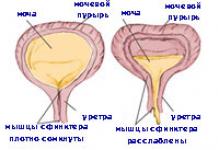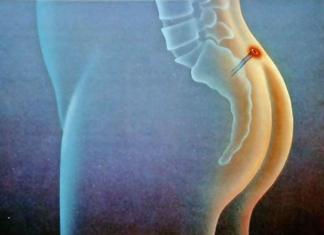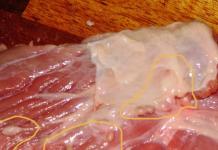Children and fast food are a dangerous combination. Find out how “fast food” affects your child’s health.
Children love fast food for its bright packaging, rich taste and gifts that are given to little visitors of fast food establishments. And if a child is reluctant to eat regular homemade food, then he will not refuse crackers, chips, hamburgers and cola.
Many people have heard about the dangers of such food for health. Let's figure out why “fast food” is dangerous for a growing child’s body.
The essence of "fast food"
The main task of fast food is to satisfy hunger quickly and with pleasure, which it does well. Typical, so it really fills you up quickly. The pleasure of such food is provided by food additives, spices and sauces. An additional bonus for children is gifts and a festive atmosphere in fast food establishments.
But there are some peculiarities of the fast food system. In particular, various food additives, dyes, odor enhancers and consistency improving products give such products an attractive appearance and taste.
How does this affect children's health?
Nutritionists have concluded that regular consumption of fast food products and dishes leads to obesity, diabetes, liver disease and increases the risk of developing cardiovascular diseases. This is due to its high fat, calorie and saturated fatty acid content.
The same consequences from frequent consumption of fast food in children. But the child’s body is still developing. An unbalanced menu, rich in fats and carbohydrates, but lacking vitamins, leads to disturbances in the endocrine and immune systems. This affects both physical and mental development.
Passion for “fast food” can cause such health problems in children
- Allergy. Cocoa, which is part of chocolate, is a strong allergen and can provoke the development of cross-allergies. and fragrances can also cause allergies.
- Problems with teeth. This is caused by excess sugar and the content of substances that disrupt the acidity in the mouth in the “fast food” menu.
- Indigestion. Such food contains little dietary fiber and fiber, so it lingers in the intestines, causing fermentation and rotting. This leads to stool upset, bloating, and constipation. In addition, such food forces the liver and pancreas to work with excessive effort. Digestive disorders are caused by the child’s consumption of various sauces (mayonnaise, ketchup, etc.), and sweet soda.
- Overweight or obesity
How to wean children off fast food?
The best solution is to completely protect your child from junk food. But strict prohibitions, as we know, can cause a backlash. It is advisable to limit trips to fast food establishments to once a month: a sandwich and a portion of French fries once every 30 days should not harm the child’s body.
It is almost impossible to completely protect modern children from junk food: they see colorful advertisements around them and hear friends talking about going to such establishments. A pack of crackers or nuts often looks more appetizing to a child than a mother’s sandwich. Parents should tell their child in detail about the dangers of the “quick menu” and offer a healthy alternative.
For example, try replacing chips with potatoes baked in the oven into small wedges. To make homemade burgers, you will need special buns, vegetables, cheese and herbs. Prepare cutlets from lean meat or fish (steamed or in the oven) and fill the bun. If desired, you can grease the inside with natural yogurt, sour cream or soft cheese.
As an alternative to unhealthy sweets, offer your child dried fruits, candied fruits, marshmallows, marmalade, beautifully cut vegetables and fruits.
If parents show by personal example which foods are harmful and which are healthy, then the child will develop correct eating habits.
Conversation on the topic: “Modern food - fast food”
Target: fostering a caring attitude towards one’s health, developing healthy image life; fostering a culture of behavior, developing cognitive abilities.
Explanation and discussion of the material.
What is fast food - it is food that is quickly prepared and eaten, very tasty, high in calories and at the same time absolutely not healthy and even harmful. Children always respond with a bang to bright packaging with drawings of their favorite cartoon characters, and all possible smell and taste enhancers that stimulate the baby’s appetite make this food even more desirable and loved. Fast food has become a common food product that is increasingly found on store shelves and on the menus of cafes and restaurants. But doctors warn about the danger, claiming that it threatens the health of humanity, especially during the period of formation and growth of the child’s immature body. And yet, despite demonstrative protest slogans, the fast food industry is developing rapidly and dynamically.
To make sure that fast food is truly unhealthy food, it is enough to cite the example of the people of the United States, a population that grew up on fast food. About 50 million Americans are obese, with the average adult weighing 100 kg. Let us remind you that Russia is among the top 10 most obese countries. It’s not for nothing that a slogan against fast food restaurants has appeared in Western countries: “Live fat and die young!”
Exercise.
The teacher asks the children questions and invites them to draw their favorite fast food product.
Questions:
1. When was the first time you tried a hamburger?
2. Do you like Coca-Cola?
3. Do you like to eat chips and crackers?
4. Do you go to fast food restaurants with your parents?
5. What does fast food mean to you?
Guys' answers.
Indeed, many of us eat such foods very often. But the consequences of such eating behavior can be dangerous to health.
The dangers of fast food for children
Avitaminosis . Develops with a lack of nutrients. If a child frequently eats fast food, all body systems may suffer. Fast food and a child are two incompatible concepts. Vitamin deficiency is manifested by rapid fatigue, decreased strength of the immune system, memory loss and frequent colds.
Problems digestive system. They occur after eating fatty, high-calorie foods. If you eat fast food constantly, gastritis and ulcers may occur. Fatty foods are digested very slowly and put a strain on the digestive system.
Diseases of the liver and pancreas. Fast food contains a high percentage of fat and cholesterol, which puts a huge burden on the liver. The pancreas also suffers, which is subject to very difficult work.
Kidney diseases. The dangers of fast food for children are due to the large amount of salt contained in the dishes. instant cooking. Two hamburgers contain a day's worth of salt. Such dishes place a very heavy burden on the kidneys.
Cardiovascular diseases. Nowadays, many children have heart problems in childhood. Many diseases are acquired, and poor nutrition plays a decisive role. Fatty foods lead to blockage of blood vessels and can cause the formation of vascular plaques, even at a very young age.
Poisoning of the body. The dangers of fast food for children are: food additives, which contain fast food. A large number of carcinogens are deposited inside the body. All this leads to a malfunction of the metabolism and endocrine system. Trans fats found in fast food can cause cancer.
Tips on how to eat fast food with minimal health risks
Choose dishes without mayonnaise and ketchup; mayonnaise can be replaced with sour cream.
Avoid fried pies, whites, French fries and pancakes - leaders in the amount of unhealthy fat.
Avoid foods with cheese and bacon. Many fast food restaurants have an assortment of fresh salads, so you should definitely take them.
Don't go to restaurants like McDonald's on an empty stomach.
Instead of a carbonated drink, choose juice or water.
You can choose pizza with seafood, or better yet, vegetarian and not with ketchup, but with natural tomatoes.
Products are prohibited for all children under 6 years of age.
Summarizing.
Exercise.
2. Remember how you answered the questions at the beginning of the lesson. Compare your old and new answers and draw your own conclusion
(Children’s answers and statements. Summing up.)
Fast food- This is a wide variety of easily prepared foods that have become popular with the ever-accelerating pace of modern lifestyle. The inability to prepare complex meals according to the clockwork of everyday life has given rise to the tradition of time-consuming weekend “family dinners,” with only sandwiches, wraps, and wraps on busy weekdays.
Fast food itself can be an extremely healthy food, depending on the ingenuity and resourcefulness of the cook. However, in recent times, the term "fast food" has become synonymous with junk food that tastes good but is loaded with empty calories and has no nutritional value. While healthy fast foods, such as salads or soy burgers, are recommended to be included in a healthy daily diet, unhealthy fast foods, such as burgers sold in fast food chains, sodas, baked goods and candies, have a negative impact on human health and should be consume in moderation. Children's appetite and taste, which are so difficult to control, can seriously suffer from prolonged consumption of harmful fast food. Calorie-rich junk foods cause obesity, which contributes to the development of numerous more serious diseases.
Impact of fast food on children
Unhealthy fast food and carbonated drinks lead to increased blood sugar levels in children. This increases the likelihood of developing type 2 diabetes, a condition in which the insulin produced in the body is unable to cope with the amount of sugar available. Type 2 diabetes nearly quadruples the likelihood of developing heart disease and contributes significantly to kidney damage and increases the risk of dementia. Saturated fats cause increased blood cholesterol levels. Cholesterol is notorious for causing various heart problems and can lead to serious heart disease.

Often, unhealthy fast food contains a lot of salts. And while they help impart an appetite-enhancing spicy aroma and flavor to food, excess sodium or potassium (which are essential components of salts, including sodium chloride, i.e. table salt) is a major cause of increased blood pressure. Blood pressure disorders can have a severe depressing effect on a person's life.
The artificially created spicy aroma is believed to be addictive. Children accustomed to unhealthy fast food have a hard time adjusting their taste buds to relatively bland healthy food. Fresh fruits and vegetables provide energy and nutrients that children need to develop. Iron deficiency, for example, can lead to anemia. Anemia, combined with the body being overloaded with complex sugars and saturated fats contained in any unhealthy fast food, can cause weakness and habitual apathy in children.
The almost complete absence of green (leafy) vegetables and fresh fruits in the diet causes a deficiency of macro- and micro-nutrients in the body. It harms the body's immune system and makes the child susceptible to various diseases and ailments. Calcium deficiency harms teeth, nails and bones, reducing bone density and increasing the likelihood of skeletal damage and tooth decay.
Obesity promotes a sedentary lifestyle because obese children are unable to participate in physically demanding activities as intensely as healthy children. The feeling of self-consciousness caused by obesity can also push a child to lead a reclusive lifestyle. Lack of regular physical activity in turn, further increases obesity and significantly increases the likelihood of developing type 2 diabetes.
Alternative to fast food
As already mentioned, fast food is not necessarily junk food. Salads, fruit (preferably fresh and whole/sliced or in the form of fresh fruit juice), nuts and unprocessed cheeses can be healthy and delicious quick snacks. Including more vegetables and fruits in your diet can never hurt, although children often reject relatively bland foods in favor of spicy junk foods, even though bland foods are healthier. Accustoming children to healthy foods and eliminating harmful foods from their diet from early childhood is the most reliable and effective method protecting children from harmful fast food, which allows you to do without any suggestions. Studies show that even the abuse of unhealthy fast food by a pregnant woman can cause the formation of a predisposition in her child to prefer the taste of such food.

- If you can’t wean your child off unhealthy fast food, try to at least make this food healthier if possible.
- Choose pizza without the traditional extra cheese. No one can taste the extra cheese anyway!
- Burgers can be ordered with one patty instead of two and with extra lettuce (or slaw), tomatoes and onions.
- Whole grain bread contains much more fiber than regular white bread and therefore aids digestion. Because of this, making (or ordering) sandwiches made with whole grain bread is healthier.
- Grilled or baked meat is not as unhealthy as fried meat because it does not require frying oil, which contains saturated fat. This also applies to other foods that are usually fried but can be cooked without oil, such as potatoes.
Homemade "junk food" can be prepared in healthier ways, such as by reducing spices, sugar and salt, or using low-fat dairy products. Freshly prepared, homemade “junk fast food” is inherently healthier than what is sold in fast food chains. Although soups are widely considered one of the healthiest foods, cream increases the calorie content of soups, minimizing their benefits. Soups without cream are, without a doubt, one of the most healthy and satisfying dishes.
Following the tips above can help reduce the harmful effects of fast food on your child, even if you have to give in to your child's urge to eat junk food. However, it should be remembered that cravings for spicy flavors are natural, and a complete ban on fast food can only make it worse. While unhealthy fast food, when consumed for a long time, certainly has a negative effect on the human body, it is normal not to deny the pleasure of occasionally enjoying it. Controlling how often you eat unhealthy fast foods also helps teach children the importance of moderation in everything.
What is fast food - it is food that is quickly prepared and eaten, very tasty, and at the same time absolutely not healthy and even harmful. Children always respond with a bang to bright packaging with drawings of their favorite cartoon characters, and everything possible that stimulates the baby’s appetite makes this food even more desirable and loved. Fast food has become a common food product that is increasingly found on store shelves and on the menus of cafes and restaurants. But doctors warn about the danger, claiming that it threatens the health of humanity, especially during the period of formation and growth of the child’s immature body. And yet, despite demonstrative protest slogans, the fast food industry is developing rapidly and dynamically.
- Fast food dishes that are prepared in kiosks and fast food restaurants: sandwiches, hot dogs, pizza, pancakes and shawarma, French fries, burgers and other similar products.
- Instant food: soups, cereals, pasta, purees.
- Packaged food and snacks that you can eat on the go. Kiosks and shelves at store checkout counters are filled with them: potato chips, salty crackers and cookies, popcorn.
Fast food is always supplemented with mayonnaise, ketchup, sausages and sausages. This food is not natural and contains a large number of chemical additives. Sausages and sausages are noticeably inferior in terms of nutritional value. Low quality raw materials are often used in their preparation. Chemical additives are included to ensure satisfactory appearance, color and aroma. What they contain is safe in itself, but more often than not, manufacturers use it unscrupulously.
The harm of fast food
Fast food dishes are high in calories and have low nutritional value, contain a large number of chemical additives and GMOs.
To make sure that fast food is truly unhealthy food, it is enough to cite the example of the people of the United States, a population that grew up on fast food. About 50 million Americans are obese, with the average adult weighing 100 kg. Let us remind you that Russia is among the top 10 most obese countries. It’s not for nothing that a slogan against fast food restaurants has appeared in Western countries: “Live fat and die young!”
Today, there are many controversies and scandals regarding fast food, revealing lawsuits and articles have been filed, but nothing prevents manufacturers from developing and winning the love of little eaters. These products do not fall into the category of culinary masterpieces at all, but rather are an achievement of chemists.
Lots of calories
All fast food food is oversaturated and practically does not contain the vitamins and minerals necessary for the body. A typical lunch at a fast food restaurant contains about half of your daily calorie intake. Children overeat, while at the same time acutely lacking vital substances.
A negative feature of fast food is unreasonably huge portions and attractive restaurant promotions that encourage you to eat more. All this inevitably leads to overeating and is deposited by excess weight in the child’s body. In addition, fast food affects the pleasure center in the brain, lowering the satiety sensitivity threshold. This means that eating fast food is dangerous.
Problem for the digestive system
Incorrect ratio of nutrients, harmful chemical additives - this is one side of the coin. The harm of fast food to the digestive system lies in its rapid consumption. Food that is not sufficiently moistened with saliva, unchewed, enters in pieces into an empty stomach. All this inevitably leads to stagnation in the stomach and intestines, bloating. Frequent snacking on such products is the cause.
The noise that is normal for McDonald's restaurants also has a negative effect on the body, delaying the release of digestive enzymes.
Excess fat
 Eating fast food leads to obesity, decreased immunity and problems with the digestive tract.
Eating fast food leads to obesity, decreased immunity and problems with the digestive tract. The bulk of fast food fats is represented by cheap transgenic margarine. Fats can account for 20 to 70% of total calories.
Their harm to the child’s body is obvious:
- Reduces immunity.
- Increase the risk of development.
- Reduces the amount of testosterone hormone.
- They cause interruptions in the exchange of prostaglandins, which trigger a large number of vital processes in all organs and tissues.
- They disrupt the functioning of an enzyme that plays an important role in neutralizing carcinogenic and medicinal toxins.
- Transgenic fats are very poor in fat-soluble vitamins (,), necessary for polyunsaturated fatty acids.
Frequent consumption of such fatty products inevitably overloads the liver, clogs blood vessels (preconditions for atherosclerosis), and increases the content of harmful cholesterol in the blood. Fats pollute the intestines, which interferes with the absorption of certain substances and leads to rapid fatigue of the child.
On a note! According to WHO, trans fats should make up no more than 1% of daily calories. A third of a serving of French fries consists of these fats. Conclusion: the fats from one serving of unhealthy potatoes should be eaten within 50 days.
Use of aggressive heat treatment methods
High temperatures . Carcinogenic substances are released from fats and oils under the influence of temperature. The worst thing is that the same fat is cooked several times, and this rapidly increases the amount of carcinogens.
During frying at temperatures above 180 degrees, a toxic substance called acrylamide is formed in French fries and fried pies, which has a harmful effect on nervous system, kidneys, liver, irritates the mucous membrane of the stomach and intestines, can cause gene mutations. According to some sources, food from fast food restaurants contains 10 times more of this substance than is allowed by WHO.
High salt content
Salt retains fluid in the body, increasing the load on the heart and kidneys. Normally, you can avoid using salt at all; its quantity in all natural products is quite sufficient for the normal functioning of a child.
Chemical additives
Frequent consumption of food containing this leads to a decrease in appetite and causes irritation of the gastric and intestinal mucosa. The listed components are potential allergens.
It must be said that instant noodles like “Rollton”, “Mivina” and others are themselves safe and allowed for consumption, but the included packets of salt and spices contain a lot of harmful things. It is better to add a piece of butter to such pasta. The consumer does not know exactly what additives and in what quantities are used in the preparation of fast food.
Flavor enhancers
Thanks to their content, simple food becomes tasty, and you want to eat it faster. After eating such food, the child perceives regular food as bland and unappetizing and does not cause appetite. Sodium glutamate promotes the development of enteritis.
Depression
Difficult to digest, heavy food, which is poor in vitamins and minerals, worsens mood; its constant consumption can even cause childhood depression. In England, since 2006, advertising of fast food products on children's television channels and in adult television programs during children's time has been banned.
Interesting to know: scientists from the University of Adelaide claim that the development of a child’s addiction to fast food has two critical periods of development.
- First - .
- Second - .
At this time, it is worth paying special attention to the ban on eating fast food.
American scientists from Ohio University have found that by frequently eating fast food, children not only become stupid, but also become stupid. Due to the lack of this food, the brain suffers from a lack of oxygen, which leads to a decrease in intelligence and school performance.
The benefits of fast food
Tips on how to eat fast food with minimal health risks
- Choose dishes without mayonnaise and ketchup; mayonnaise can be replaced with sour cream.
- Avoid fried pies, whites, French fries and pancakes - leaders in the amount of unhealthy fat.
- Avoid foods with cheese and bacon.
- Many fast food restaurants have an assortment of fresh salads, so you should definitely take them.
- Don't let your children go to restaurants like McDonald's on an empty stomach.
- Instead of a carbonated drink, choose juice or for your child.
- You can choose pizza with, or better yet vegetarian, and not with ketchup, but with natural tomatoes.
Fast food is food sold at McDonald's and other fast food restaurants. This category also includes “Rolton”, chips, and pizza. And there is much more that can be eaten immediately after purchase, without heating or undergoing additional processing. Let's find out what is harmful about fast food and how it affects the health of adults and children.
What harm does fast food cause?
Where did the idea come from that fast food causes health problems? After all, there are many examples to the contrary. There are exceptional people who, almost their entire lives, regularly try hamburgers, sausage rolls, and the like, but they feel good and do not experience problems with their figure. But, again, this is the exception. And simple statistics show that fast food is extremely dangerous to health. Let's list the most harmful properties.
1. Rapid and persistent obesity
It is clear that if you regularly exceed the calorie allowance, excess weight will definitely appear. But the excess weight from pasta or boiled potatoes is different from the excess weight that comes from fast food. This is noticeable from the outside, just look at the person. The problem is not just calories. A person who abuses fast food looks different: he develops a large, loose ridge on his stomach; in men, mastopathy develops over time, cheeks sag, legs swell, cellulite develops...
What's the matter? Firstly, in the same calories. For a snack at McDonald's, a person immediately receives 800–1000 calories. Considering that for women daily norm calories is 1500–1700 calories. You can eat practically nothing for the rest of the day. Secondly, fast food does not fill you up. It is initially prepared with the expectation that you will quickly feel hungry after you eat a portion. Calories are absorbed instantly, and appetite is further stimulated by sweet carbonated water.
It turns out that it is better to overdo it with the same pasta than with hamburgers and fries. Yes, you will gain weight too. But not so fast. Pasta satisfies hunger, while fast food suppresses it for half an hour or an hour and no more.
2. Diseases of the gastrointestinal tract
The list of diseases that can be caused by fast food is huge. And first of all, it negatively affects the functioning of the gastrointestinal tract. Here are just the most common consequences: stomach ulcer, gastritis, bloating, intense gas formation, intestinal obstruction. There are scientific studies showing a connection between eating fast food and the development of stomach or intestinal cancer. It's not about calories, but about transgenic fats, which are always abundant in fast food.
Even if workers follow the rules and change the oil regularly, frying still releases carcinogens. The more often you use them, the higher the risks. Due to the high content of salt and spices, fluid accumulates in the body. Swelling appears, intestinal motility with all that it entails becomes difficult.
3. Diseases of the cardiovascular system
4. Skin and hair problems
There are several reasons for the condition of your skin and hair to deteriorate. Fat content, increased cholesterol levels, a lot of salt and harmful carbohydrates cause a lot of side effects. The state of digestion worsens, as mentioned above. General metabolic disorders lead to acne. The skin becomes dull, oily, pores become wider and more noticeable. Hair loses its former appearance. You can quickly say goodbye to a healthy glow. Fragility increases, making it harder to wash and style your hair.
There are quite a few problems. Here you need to add significant costs. You say that fast food is inexpensive. Perhaps a hamburger with potatoes and cola will save you money on a normal set lunch. But you don't take into account the costs that await you in the future. You will have to buy medications, pay for doctors’ services, select an individual diet with expensive products... And this is exactly what awaits you, although now you are not thinking about such consequences.
How fast food harms children's health
Let's talk separately about the impact of fast food on children's health. All of the above is true here, but there is also its own specificity. Let's name the risks for children associated with eating hamburgers, sausage rolls, shawarma, chips and other things. Children love all of the above even more than adults.
- Risk of diabetes. Diabetes– the disease is hereditary. It cannot be caused by frequent consumption of sweets. But regular consumption of fast food increases the risk of developing the disease. Even with a hereditary predisposition, not everyone gets sick. When heredity and poor nutrition “add up,” the prediabetic state turns into open diabetes. In the case of children, the risk is especially high.
- Decreased immunity. If you notice that your child suddenly begins to get sick more often or suffers from colds longer, reconsider his diet. Fast food, having a bad effect on digestion, also worsens immune defense. The child’s immune system can be so severely undermined that it will take a very long time to restore it in the future. Perhaps adults do not notice this in themselves. But the child’s body reacts to such changes more sensitively.
- Disturbances of the endocrine system. Doctors say that fast food should not be given to children under 16 years of age. Why? It negatively affects the endocrine system. If the body is not fully formed, this can lead to disastrous consequences. Childhood obesity, which is precisely related to the functioning of the organs of the endocrine system, is very difficult to treat. And the parents themselves usually fail. Need help from doctors.
- Mental development slows down. The claim is controversial, but some researchers believe there is a connection. The complex negative impact leads to a child’s developmental delay. Are getting worse brain processes, attention is scattered. “Fertile” soil for problems in learning and mastering new material.
Let's sum it up
If you want to preserve your own health and the health of your child, limit your consumption of fast food. It is clear that it is almost impossible to completely refuse. But you can’t visit fast food establishments every day to relax or get instant pleasure. This should be a necessary measure when it is not possible to eat normally.


























